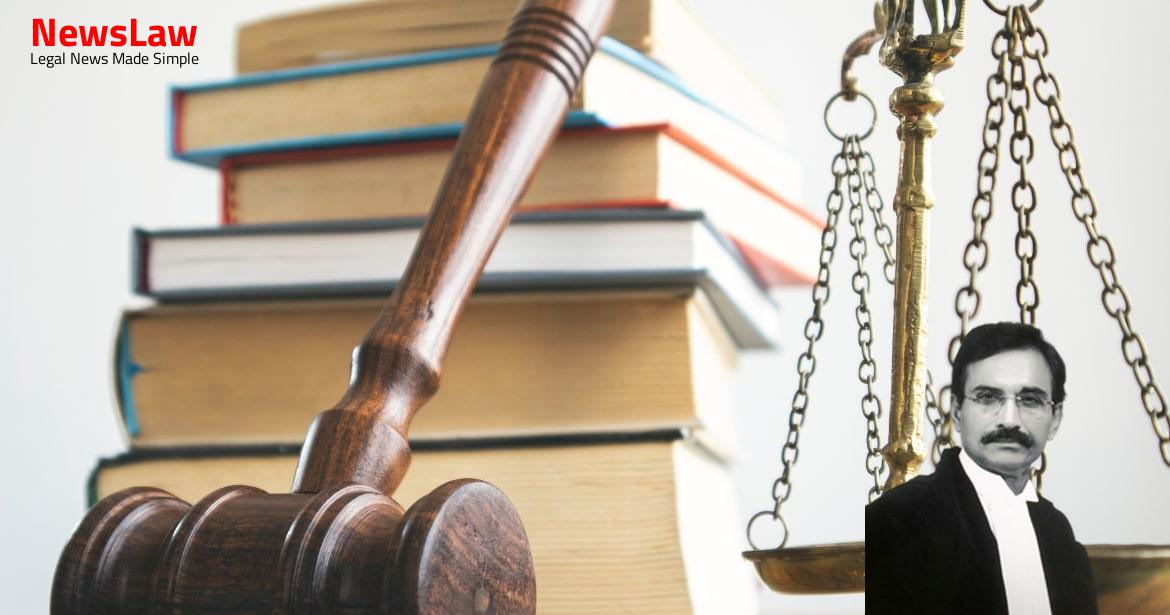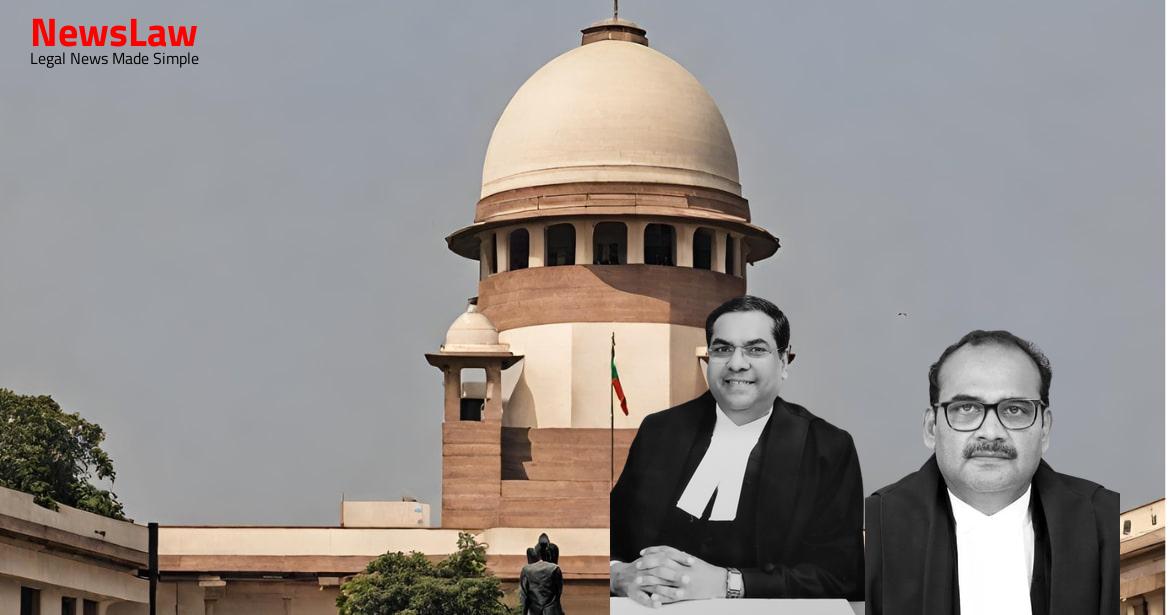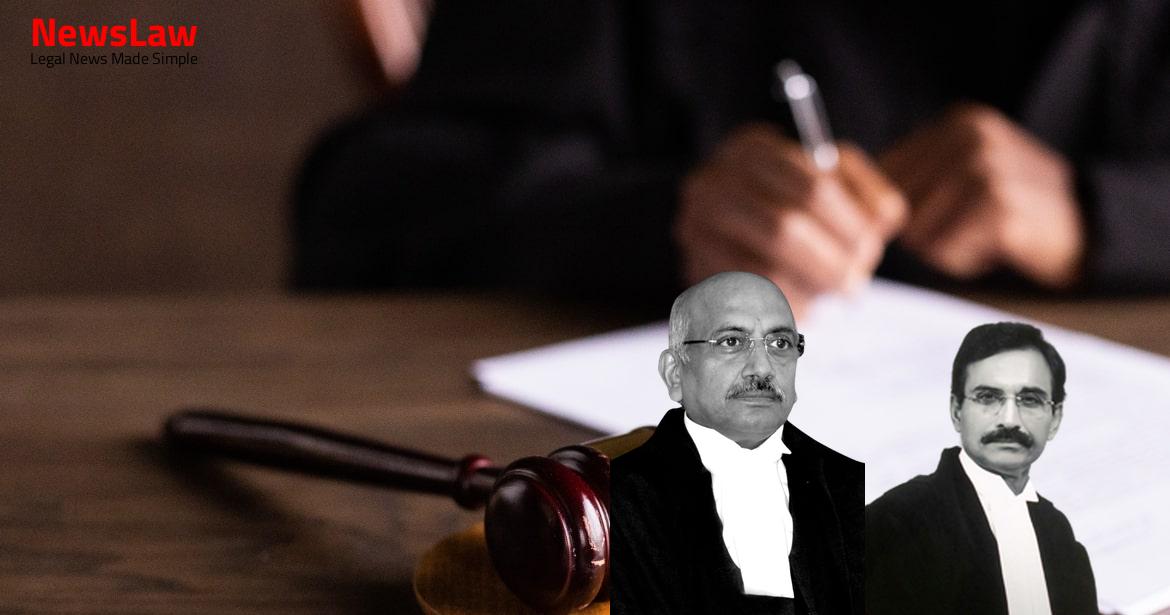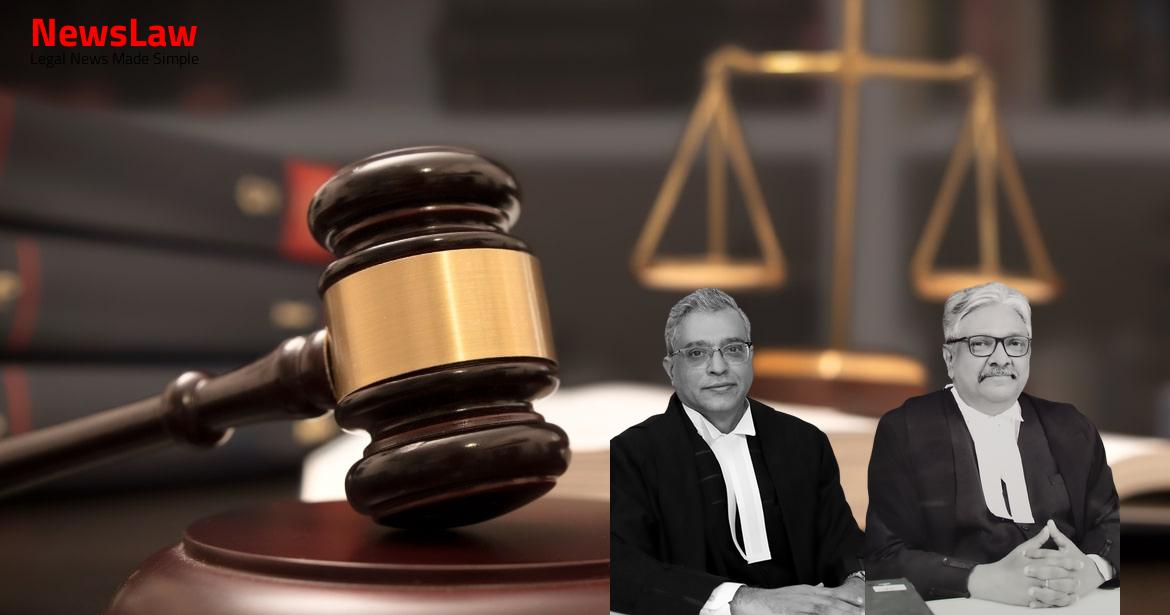Explore the intricacies of the court’s legal analysis on party leadership and disqualification rules in a recent case. The judgment highlights the importance of adherence to rules within political parties to avoid disqualification actions. Stay tuned to understand how the court’s interpretation shapes the functioning of democratic institutions and maintains the integrity of the political system.
Facts
- The appellant and respondent Nos. 3, 4, and 5 were elected as members of the Panchayat Samiti, Shrirampur in the elections held in 2017.
- They formed a ‘Panchayat Samiti Party’ named INCPS Party authorized by the INC Party.
- The District Collector approved the selection of Dr. Vandana Dnyaneshwar Murkute as Gatneta of the INCPS Party, which was challenged in the writ petition.
- Conflicting whips were issued in the party regarding the election of the Chairman and Vice-Chairman of the Panchayat Samiti.
- A resolution passed by the District INC Party President led to the removal of the appellant as the Party Leader of INCPS Party.
- Disqualification proceedings were initiated by both the appellant and respondent No. 3 against each other.
- The High Court dismissed the writ petition challenging the approval of Dr. Vandana Dnyaneshwar Murkute as Gatneta, leading to the current appeal.
- Mr. Jayantrao Sasane was given powers to submit proposals to the District Collector regarding party leadership changes.
- The appellant was elected as the Chairman despite conflicting decisions within the party.
- Various proceedings and meetings took place regarding the party leadership and elections.
- The judgment contained a direction related to compliance with certain rules by the members.
- Non-compliance with the said rules would result in potential disqualification of the members.
- The direction emphasized the importance of adhering to the prescribed rules to avoid facing disqualification action.
Also Read: Presumption of Genuine Endorsements in Cheque Case
Arguments
- The appellant argues that the Rules were enacted to prevent horse-trading and maintain purity in the political system.
- The Rules specify that once a Party Leader is elected, they should continue for a period of five years.
- The meeting to remove the appellant as Party Leader was convened by an outsider, the President of the Ahmednagar District INC Party.
- The appellant could not have been removed as Party Leader until the completion of the five-year term, as per the Rules.
- The appellant’s counsel presented Rule 3(1)(b) of the Rules, stating that the appellant was elected as Party Leader for five years according to the INCPS Party rules and regulations of the Panchayat Samiti Party.
- The meeting could only have been convened by the appellant, as per the Rules.
- Shri Sachin Patil, representing the State, stated that the District Collector initially approved the appellant as Gatneta based on a resolution passed by all four members of the INCPS Party.
- The subsequent approval granted to respondent No.3 as Gatneta was based on a resolution passed by three-fourth majority of the INCPS Party, validating the District Collector’s action.
- On the contrary, Shri Ravindra Adsure, representing respondent Nos. 3 to 5, argued that the appellant breached the Rules by contesting the election for the post of Chairman against the INCPS Party’s mandate.
- The appellant’s election to the post of Chairman with the support of rivals was highlighted as a violation.
- Referring to clause (l) of Section 2 of the Maharashtra Local Authority Members’ Disqualification Act, it was noted that the term ‘Panchayat Samiti party’ includes all members of the Panchayat Samiti belonging to a specific political party or alliance.
Also Read: Medical Negligence and Compensation: A Landmark Decision
Analysis
- A councillor or member belonging to a political party, aghadi, or front can be disqualified if they voluntarily give up their membership of such party or if they vote contrary to the party’s direction without prior permission.
- The disqualification can be condoned if the voting or abstention was with prior permission and is condoned by the party within fifteen days.
- A nominated councillor is deemed to belong to a party if they were a member at the time of nomination, or if they join within six months after nomination.
- An elected councillor who joins a party after the election will be disqualified.
- Existing councillors or members will be deemed to belong to a party if they were a member at the commencement of the Act.
- Sub-section (1) is subject to the provisions of Section 5 which deals with disqualification on the ground of defection.
- The Panchayat Samiti Party is defined as the group of all members belonging to a political party according to the rules.
- Rule 3 requires the leader to furnish information about the party members within thirty days of commencement of the Act or formation of the party.
- Any change in the information provided must be communicated to the Commissioner or Collector within thirty days.
- Voting or abstention without prior permission in elections under relevant laws will not be condoned.
- The leader of a municipal party in an aghadi has to be chosen by the aghadi or front, not by an outsider
- Any change in the leader of the municipal party must be done by the aghadi, not an outsider
- The Group Leader of the aghadi can only be changed by the group itself, not by individual political parties within the aghadi
- A leader must be elected in a democratic process, not imposed
- Section 28 ensures that an elected representative can only stay in power as long as they have the majority support of the elected members
- Imposing a Group Leader outside the democratic process is a violation of the rules and undermines democracy
- A leader must be elected by the group and not imposed by any individual or party outside of the democratic process
- In the case of Sunil Haribhau Kale v. Avinash Gulabrao Mardikar and others, it was emphasized that in democracy, individuals heading public bodies can continue if they have the confidence of the members of such bodies.
- The case of Usha Bharti v. State of Uttar Pradesh and others involved a challenge to the validity of Section 28 of the U.P. Kshettra Panchayat 24 and Zilla Panchayats Act, 1961, regarding ‘no confidence’ against the Chairperson of Zilla Panchayat. The challenge was negated, stating that it is not inconsistent with the Constitution.
- Similar observations were made in the case of Bhanumati and others v. State of Uttar Pradesh and others, emphasizing that democratic principles are essential for the functioning of such institutions.
- The Act and Rules are in line with the provisions of the Tenth Schedule of the Constitution of India to prevent horse-trading and maintain purity in the political system.
- Interpreting the provisions should not allow a minority to force themselves upon the majority.
- The appellant’s argument of horse-trading is surprising, as they sought the support of a rival group against their own Party’s wishes.
- The High Court’s decision is found to be justified and there is no reason to interfere with it.
Also Read: Remand of Writ Petition for Restoration and Decision on Merits
Decision
- The appeal was dismissed
Case Title: SAU. SANGEETA Vs. THE STATE OF MAHARASHTRA (2021 INSC 434)
Case Number: C.A. No.-005059-005059 / 2021



